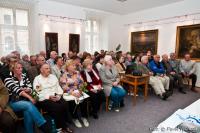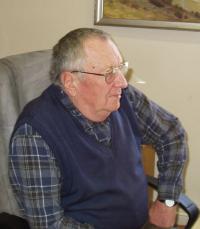We were the last in the district to join the kolchoz.

Download image
Antonín Procházka was born on the 5th of June 1932 in Žižice, where his family had lived and farmed since the 16th century. His father was mayor of the village until 1945. The family were the last in their district to join the local agricultural co-op, doing so in 1957. Consequently, eighty percent of their property was confiscated, followed by a five year ban on holding managerial positions in the co-op and on leaving the co-op. Despite this, Antonín Procházka was asked by the political secretary to take on the job of agriculturalist. He held this position until 1989, when the family re-acquired its property, and Procházka’s son took charge of the farm.

